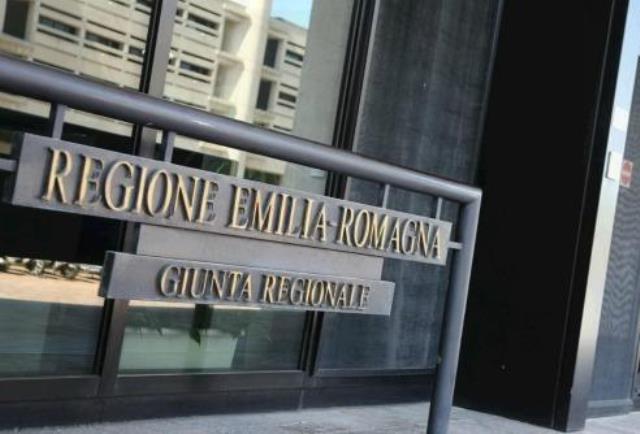Donini: “Important tools that track procedures and timescales and put our healthcare system in a position to comply with what has been established by the High Court. The will and dignity of the person come first.”
While waiting for the national law, the Council has established that the assessment of the existence of the necessary criteria and the methods of application must be entrusted to public structures of the National Health Service, after hearing the opinion of the territorially competent Ethics Committee
February 9, 2024 – La Emilia Romagna region completes the process for the application of sentence number 242 of 2019 of Constitutional Courtso that the patient can be guaranteed right to take leave of life, respecting his will, self-determination and his concept of dignity. In compliance with the criteria defined by the High Court.
And it does so with two acts: one from the regional council, which established the Regional Committee for Ethics in the Clinic (COREC), whose tasks include ethical consultancy on individual cases, the expression of non-binding opinions relating to requests for medically assisted suicide and the bioethical aspects connected to health and social-healthcare activities; and the Technical-operational instructions sent today by the Department of Health Policies to healthcare companiesguidelines with operational indications for the management of medically assisted suicide (SMA) requests, from receipt of the patient’s request and throughout the process (see attached sheet), through the establishment of specific ones Large Area Evaluation Commissions.
The criteria indicated by the High Court for avoid abuse and referees are mandatory: the patient must be affected by one irreversible pathologyfrom which they derive physical or psychological suffering that the patient considers intolerablewho is kept alive by life-sustaining treatments and so be it fully capable of making free and informed decisions. The Council also established that, awaiting national legislative interventionthe assessment of the existence of these criteria and the methods of application of the sentence must be entrusted to public structures of the National Health Servicehaving heard the opinion of the territorially competent Ethics Committee.
“We wanted to make the most of the excellent experience of the Ethics Committee in the clinic of the AUSL-IRCCS of Reggio Emilia (CEC), transforming it into a Committee with regional and reference value for the companies of our healthcare service – underlines the Councilor for Health Policies, Raffaele Donini-. The establishment of the Regional Committee for Ethics in the Clinic, together with the Guidelines which, it is worth remembering, each Region is called upon to equip itself with, are two important tools for tracing precise paths and timing on topics of great ethical importance, which they rightly call into question different sensitivities and opinions, and on which the Constitutional Court has already expressed its clear opinion”.
What COREC does
It COREC formula opinions in relation to ethical questions and choices attributable to both welfare and organizational activities; provides opinions on ethically complex casessometimes characterized by the presence of a conflict of values, promotes training initiatives for healthcare personnel e di awareness raising aimed at citizens on bioethical issues.
She has been appointed to the presidency of COREC Ludovica De Panfilis, bioethicist of the AUSL-IRCCS Reggio Emilia, for the experience gained as president of the CEC. Of the Regional Committee for Ethics in the Clinic, which is based at the AUSL-IRCCS Reggio Emilia, are part 22 doctors, healthcare personnel and others, including jurists and bioethicists who will remain in office for three years. The composition of the committee took into account the indications of the National Biotics Committee.
Guidelines for healthcare companies: what the Vast Area Evaluation Commissions do
The components of Large Area Evaluation Commissions they are appointed by resolution of the Regional Council, upon proposal of the Coordination of Vast Area Health Directors. These Commissions, public structures of the National Health Service, will have the task of verifying the existence of the requirements and the methods of application of the ruling of the Constitutional Court in cases of SMA request.
It is up to the Commission check the conditions (clinical and personal prerequisites), verify that the possible alternatives available have been offered (e.g. palliative care path, continuous deep palliative sedation, implementation of appropriate pain therapy, etc.) and evaluate whether there may be reasons for rethinking by the patient, also through specific psychological support.
As a rule, the Commission meets not only the patient, but also family members or significant people in the relationship life indicated by the patient himself and in compliance with his wishes, to evaluate the socio-relational context and verify that the intention of medically assisted suicide is not influenced by other factors and/or people. Furthermore, the Commission must check the modes and settings for the possible implementation of medically assisted suicide to guarantee the patient’s dignity and avoid further suffering.
They are part of the Evaluation Commission professionals with the necessary skills to ascertain the clinical and personal assumptions of the requestsi.e. palliative care doctor, anesthetist-resuscitator, forensic doctor, psychiatrist, specialist doctor in the pathology affecting the person requesting medically assisted suicide (neurologist or oncologist or haematologist), pharmacologist/pharmacist, psychologist.
The patient can indicate a trusted doctor as their consultant in relations with the Evaluation Commission.
Access to medically assisted suicide, as indicated by the ministerial noteis totally free for the requesting patient, as all the medical expenses in question are borne by the National Health Service.
